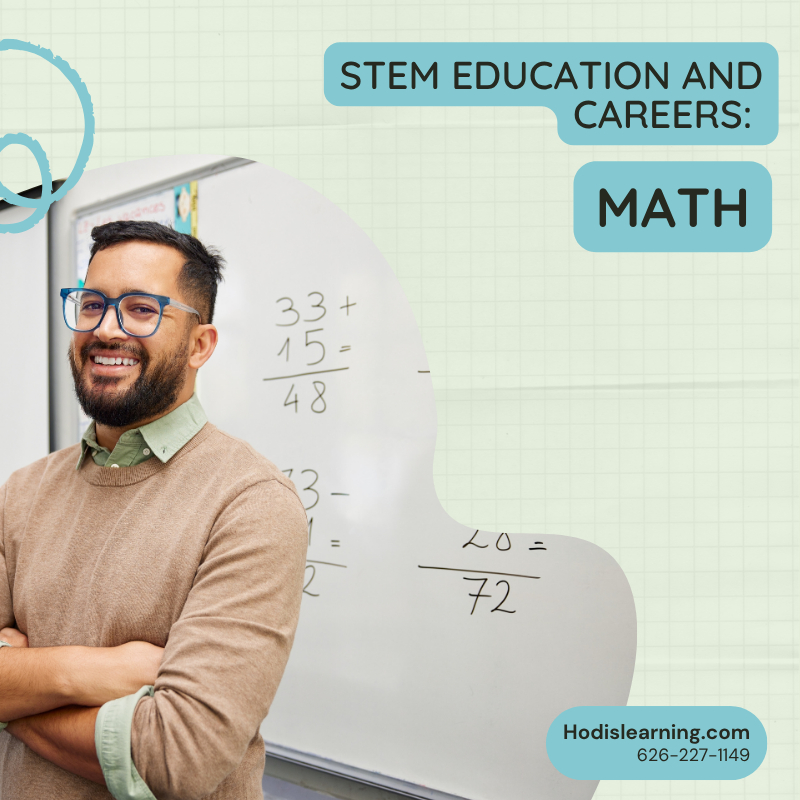STEM Education and Careers: Math
Math is often called the language of the universe, and for good reason! It’s the foundation of every other STEM subject and a powerful tool for solving problems, understanding patterns, and making informed decisions. In the final post of our STEM series, we’re turning our focus to math. We’ll go over its importance, how students can excel in math classes, how to prepare for math-focused careers, and what opportunities are out there for math-minded students.
Why Is a Career in Math Important?
Math drives progress across every field, from business and economics to engineering, healthcare, and even art. It’s essential in analyzing data, predicting trends, and understanding complex systems. Math helps us design algorithms, optimize logistics, and understand the probabilities behind everyday decisions.
Even if students don’t pursue a math-specific career, math teaches logic, discipline, and problem-solving that apply across nearly every profession. For those who do pursue careers in math, the options are broad and exciting!
How Can Students Be Successful in Math Courses?
Many students struggle with math. But with the right approach, students can be successful.
- Build strong fundamentals. Understanding the basics makes advanced topics easier to grasp.
- Practice consistently. Like learning a language, math requires regular practice to improve fluency.
- Don’t just memorize– understand. Focus on why a method works, not just *how* to do it.
- Ask questions early. Small gaps in knowledge can snowball quickly in math, so don’t wait to get help.
Tutoring can be especially helpful in breaking down tricky concepts and building confidence.
How Can Students Prepare Early for a Career in Math?
To build a strong math foundation, students should:
- Take challenging math classes early, like Algebra I & II, Geometry, Pre-Calculus, and eventually Calculus or Statistics.
- Participate in math clubs or competitions to build interest and experience.
- Use online tools and games to keep practice engaging and interactive.
- Apply math to real-world scenarios like budgeting, coding, or analyzing sports stats.
For students interested in advanced careers, early exposure to logic puzzles, programming, or research projects can make a big difference.
What Math Careers Should Students Consider?
Math-focused careers can be found in nearly every industry. Some popular options include:
- Actuary: Analyze risk for insurance and finance companies.
- Statistician: Interpret data and identify trends.
- Mathematician: Solve theoretical and practical problems across industries.
- Data Analyst or Data Scientist: Manage and interpret large sets of data.
- Operations Research Analyst: Help organizations solve complex logistical challenges.
- Financial Analyst: Forecast and model business performance.
Fields such as data science, financial technology, and quantitative research are growing quickly, offering exciting opportunities for math-lovers.
Conclusion
Math is more than numbers– it’s a gateway to innovation, discovery, and real-world impact. With strong math skills, students are equipped to succeed in nearly any path they choose.
If your student needs support or wants to build math confidence, Hodis Learning & Music is here to help. Call or email us today to learn more!



